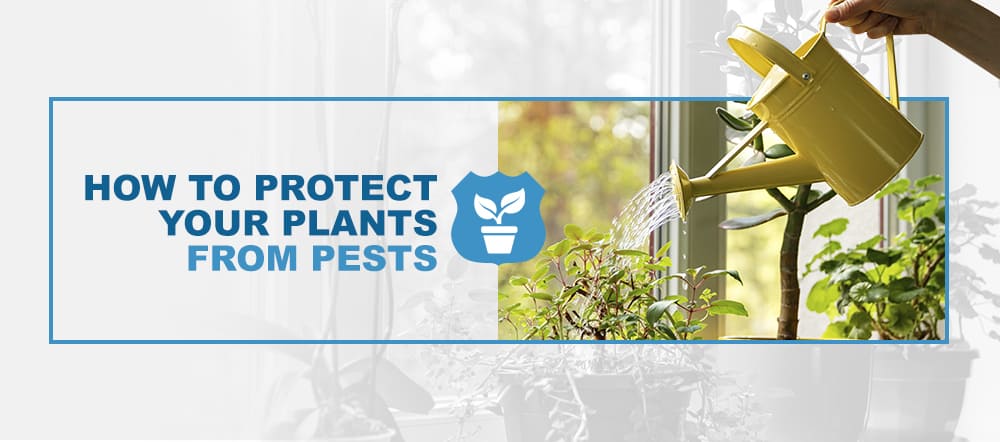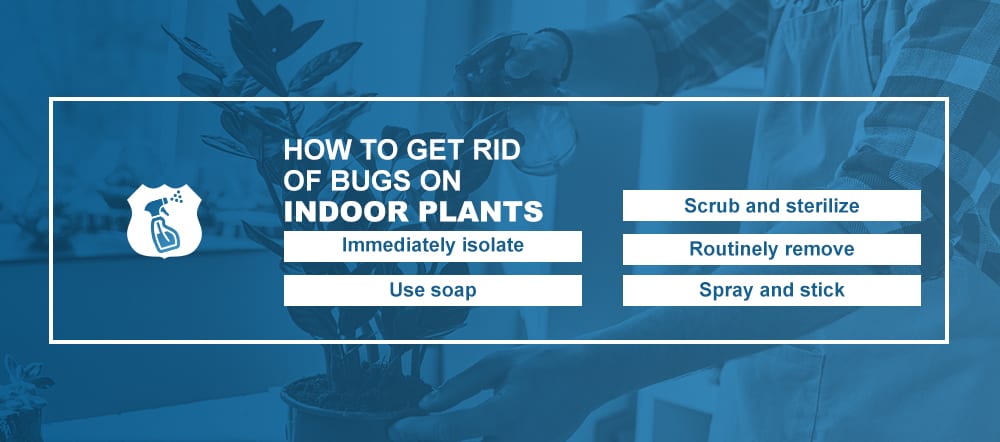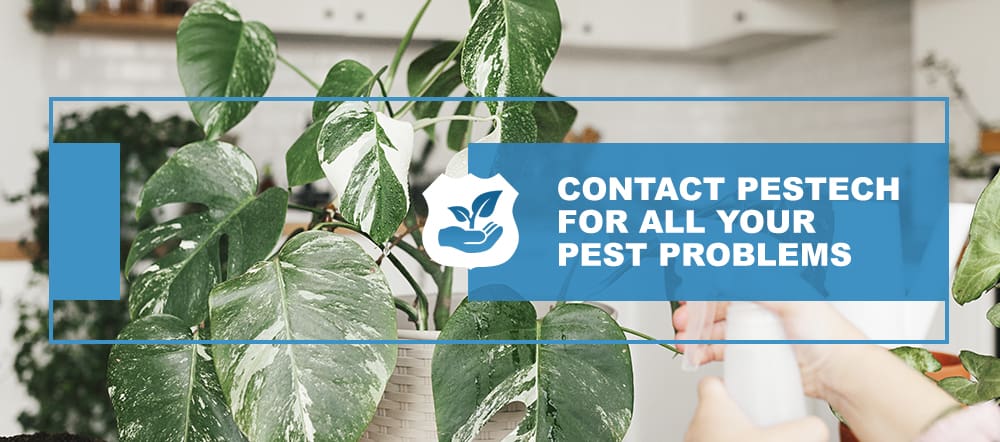How to Protect Your Plants From Pests

Houseplants are a joy to have around the home, but the happiness plants bring can quickly sour if they become infested. More than just annoying, an insect infestation in your house can be unsafe. Luckily, there are many methods for deterring and controlling such pests.
To keep your houseplants from becoming infested, read this article for tips on how to prevent pests from entering your home and how to get rid of them if they do.
How Do I Keep Bugs off My Houseplants?
Before you can keep your houseplants safe from pests, you have to first know what common houseplant pests to look out for. Once you’re able to recognize the signs of an infestation, you’ll be better prepared to fight against it.
Although the pests you encounter will depend on the climate you live in, here are some of the most common pests to watch out for:
-
- Aphids
- Spidermites
- Whiteflies
- Mealy Bugs
- Fungus Gnats
Spotting one of these bugs might not seem like a big deal, but unfortunately, where there’s one, there’s usually more. If you don’t want to deal with a larger pest problem, it’s best to prevent pests from entering your home in the first place.
Tips to keep pests from eating your houseplants:
- Consider the conditions: Before choosing your houseplant, think about the lighting conditions you live in and what type of plant is best suited for them. Plants that are not well-matched with the lighting conditions that they end up in endure a lot of stress, which increases their likelihood of insect infestation.
- Select sterile soil: Be intentional in potting your plants with sterile soil. Houseplants do not need the same bacteria and fungus in their soil that outdoor plants do, so be careful to use sterile store-bought soil that won’t bring any unwanted insect larvae into your house.
- Drain the dirt: When you pot your houseplant, put a drainage layer of gravel at the bottom. Roots forced to soak in poorly drained soil become more vulnerable to insect attacks.
- Clean consistently: If you don’t clean your houseplant with a rag moistened with soapy water regularly, dust buildup can start to collect on its leaves, which insects feed off of. Some insects thrive in dusty environments and will be quick to make a dusty houseplant their new home.
There are many types of plants that naturally ward off insects. Stationing pest-deterring herbs and plants around your home could keep it safe from insect infestation.
Depending on your particular pest concerns, keep some of these herbs near your kitchen to naturally repel bugs while whipping up delicious dishes.
Herbs That Help Repel Houseplant Pests
- Chives: If you have a problem with Japanese beetles in the summer, plant some chives to keep them away from your house.
- Basil: Basil’s strong scent deters bugs like mosquitoes and houseflies from buzzing around your kitchen. Plus, it makes a great addition to a meal.
- Bay leaves: Repel both cockroaches and flies from your kitchen with some well-placed bay leaves.
- Mint: Another potent herb, mint wards off mosquitoes along with spiders and ants. Use mint leaves to brew some tea while keeping your kitchen pest-free.
- Lemongrass: Lemongrass is an effective mosquito repellent because it contains citronella, which has a strong citrus scent that mosquitoes can’t stand.
- Catnip: Catnip’s essential oil, nepetalactone, is almost as effective as DEET at repelling mosquitoes. You can plant it around your house to fend off mosquitoes and cockroaches as well as simmer it in water to concoct a homemade bug spray or catnip tea.
How to Get Rid of Bugs on Indoor Plants

Ideally, your precautions will work, and you will never need to worry about what to do when you see a pest on your houseplant. But even the most careful gardeners can’t stop all bugs, so it’s important to know how to react if you do notice an unwanted guest making itself comfortable on your plant’s leaves.
If you spot a pest in your plants, follow these five steps:
- Immediately isolate: The first thing you need to do is put your plant in quarantine. Isolating the affected houseplant should block the infestation from spreading, but continue to keep a close eye on the surrounding plants just in case.
- Scrub and sterilize: Even after isolating the problem plant, hidden bugs could still be near the area. Use soapy water to thoroughly wash where the plant was, then sterilize the space with rubbing alcohol for good measure.
- Use soap: Once you’ve cleaned the area it was in, use insecticidal or any other liquid soap that will kill bugs on contact to wash down the infested plant. Although you want it to be harsh on the bugs, make sure that the soap you use doesn’t contain degreasers or detergents that could harm your plant.
- Routinely remove: Continue to check up on your plant and get rid of any egg sacs, cocoons or webs you may find. To do the best job possible, use some cotton dipped in isopropyl alcohol when clearing away pest debris.
- Spray and stick: To eliminate pests while keeping your home safe, use organic pesticides like rubbing alcohol, pyrethrin or plant oils to create a homemade bug spray for indoor plants. In addition to sprays, put up sticky traps near the infested plant to catch flying pests, like flies and gnats.
How to Handle a Larger Pest Problem
If you try every home remedy, and your houseplant pests persist, you might consider using chemicals. If you choose to do so, be careful to choose one specifically labeled for indoor houseplants and for your pest problem in particular. Look for a pesticide appropriate for the type of plant you need to use it on, so you don’t damage your houseplant.
Sometimes, an infestation will continue even after the use of chemicals. In this case, you should look into getting professional residential pest control to help you manage the problem.
Ultimately, you’ll have to decide when keeping a houseplant just isn’t worth it. If a plant is severely infested with insects and no amount of spraying or pruning away the worst areas helps, it may be time for you to throw away the plant.
Contact Pestech for All Your Pest Problems

To avoid a minor pest issue turning into a nightmare, contact Pestech Pest Solutions with any pest control requests or questions. Pestech Pest Solutions is a family-owned pest management center dedicated to keeping your home healthy and pest-free. We offer expert residential pest control services for many specific types of pests, along with our 100% satisfaction guarantee.
If you need help handling an insect infestation in Dutchess County, Orange County or throughout New York, call Pestech Pest Solutions today.
